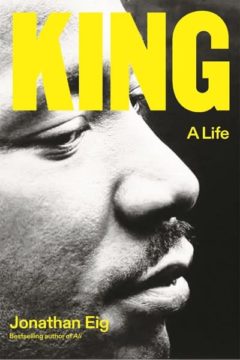Kelefa Sanneh at The New Yorker:
 When King was assassinated, in 1968, he was generally viewed as a leader with a mixed record. President Lyndon B. Johnson had grown frustrated with him, and he was beset by detractors who found him either too much or not enough of a troublemaker; the year before, an article in The New York Review of Books had referred to his “irrelevancy.” But in the years after his death the skeptics grew quieter and scarcer. In 1983, Ronald Reagan signed legislation creating Martin Luther King, Jr., Day, over the objection of twenty-two senators. And now, as national heroes of all sorts are being reassessed, the question is usually not whether King was great but, rather, which King was the greatest. The 2014 film “Selma” reverently dramatized his voting-rights activism; some people these days focus on his anti-poverty campaign and his opposition to the Vietnam War; others emphasize his advocacy of integration, and his vision of a time when Black children “will not be judged by the color of their skin but by the content of their character.” The proof, and the price, of King’s success is that everyone wants a piece of him.
When King was assassinated, in 1968, he was generally viewed as a leader with a mixed record. President Lyndon B. Johnson had grown frustrated with him, and he was beset by detractors who found him either too much or not enough of a troublemaker; the year before, an article in The New York Review of Books had referred to his “irrelevancy.” But in the years after his death the skeptics grew quieter and scarcer. In 1983, Ronald Reagan signed legislation creating Martin Luther King, Jr., Day, over the objection of twenty-two senators. And now, as national heroes of all sorts are being reassessed, the question is usually not whether King was great but, rather, which King was the greatest. The 2014 film “Selma” reverently dramatized his voting-rights activism; some people these days focus on his anti-poverty campaign and his opposition to the Vietnam War; others emphasize his advocacy of integration, and his vision of a time when Black children “will not be judged by the color of their skin but by the content of their character.” The proof, and the price, of King’s success is that everyone wants a piece of him.
more here.
